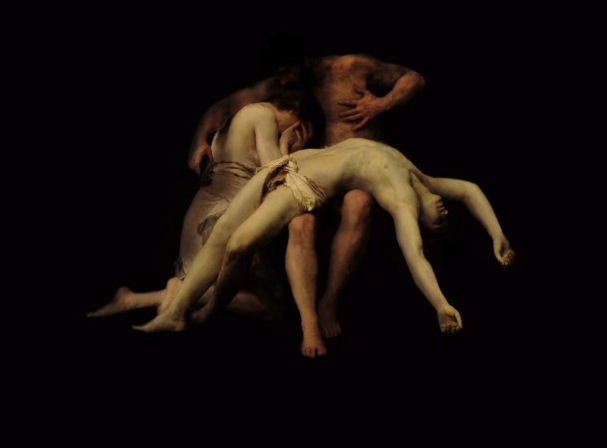TYPES OF LOVE AND THEIR THOERIES.
Love is a special and
complicated emotion which is quite difficult to understand. Love
actually occurs in the brain. Artists, poets and painters all epitomize
the heart as the love symbol, but it’s the brain that generates chemical
signals to make people understand love.
There are different
forms and styles of expressing love. To describe these styles, the
Ancient Greeks came up with four terms of love
(Eros, Storge, Agape and Philia). Here are these four loves in details.
(Eros, Storge, Agape and Philia). Here are these four loves in details.
AGAPE
This is an
unconditional love that sees beyond the outer surface and accepts the
recipient for whom he/she is, regardless of their flaws, shortcomings or
faults. It’s the type of love that everyone strives to have for their
fellow human beings. Although you may not like someone, you decide to
love them just as a human being. This kind of love is all about
sacrifice as well as giving and expecting nothing in return. The
translation of the word agape is love in the verb – form: it is the love
demonstrated by your behavior towards another person. It is a committed
and chosen love.
PHILEO
The Phileo love
refers to an affectionate, warm and tender platonic love. It makes you
desire friendship with someone. It’s the kind of love which livens up
the Agape love. Although you may have an agape love for your enemies,
you may not have a phileo love for the same people. The translation of
the word phileo is love in the noun – form: it is how you feel about
someone. It is a committed and chosen love.
STORGE
It is a kind of
family and friendship love. This is the love that parents naturally feel
for their children; the love that member of the family have for each
other; or the love that friends feel for each other. In some cases, this
friendship love may turn into a romantic relationship, and the couple
in such a relationship becomes best friends. Storge love is
unconditional, accepts flaws or faults and ultimately drives you to
forgive. It’s committed, sacrificial and makes you feel secure,
comfortable and safe.
EROS
Eros is a passionate
and intense love that arouses romantic feelings; it is the kind that
often triggers “high” feelings in a new relationship and makes you say,
“I love him/her”. It is simply an emotional and sexual love. Although
this romantic love is important in the beginning of a new relationship,
it may not last unless it moves a notch higher because it focuses more
on self instead of the other person. If the person “in love” does not
feel good about their relationship anymore, they will stop loving their
partner.
This just offers you a
general understanding and description of the four types of love which
promotes a good, healthy and progressive relationship. In any
relationship, you should have all these four loves working together to
enable it survive for a longer time. But in some cases, a relationship
may be long-lasting if partners share the same style of love.
Theory of Love
This theory was advanced by Robert Sternberg. The theory proposes three
building blocks which must be present for love to be complete. Absence
of one or more blocks in a love relationship can lead to its
disintegration.
THE THREE BUILDING BLOCKS OF LOVE
PASSION
This is mainly associated with physical arousal. Passion
causes people to be physically moved by the presence of their partner.
However, passion may also encompass any other deep emotional
satisfaction that partners derive from the relationship.
INTIMACY
This comprises a mutual feeling of closeness and attachment
to each other. Intimacy causes partners in a love relationship to have a
strong bond connecting them. It makes them feel at ease with each
other.
COMMITMENT
Unlike the other two blocks, commitment involves a
conscious decision to stick with one another. The decision to remain
committed is mainly determined by the level of satisfaction that a
partner derives from the relationship.
THE TYPES OF LOVE USING THESE BUILDING BLOCKS
Sternberg came up with a triangular model where the three
love components take the vertices of the triangle. The three love
components interacts with each other to generate seven distinct kinds of
love.
Sternberg’s seven kinds of love:
CONSUMMATE LOVE
This is the ideal
kind of love in which all the three components are present in their
right proportions. This form of love is considered to produce the
perfect couple. The love relationship can survive over a very long time.
However, it can also die if any of the three components start to
diminish.
FATUOUS LOVE
This occurs when people make commitments based on passion
without the element of intimacy. Lack of the stabilizing effect of
intimacy makes the relationship disintegrate as passion diminishes with
time.
COMPANIONATE LOVE
Companionate love is the kind that exists among family
members. It involves intimacy and long-term commitment .This kind of
love is characteristic of many couples who still remain affectionate and
committed to each other long after passion dies.
ROMANTIC LOVE
This form of love happens as a result of intimacy and
passion. Such couples are attracted to each other physically and have
strong emotional bond. However, there is absence of commitment in the
relationship.
EMPTY LOVE
This is characterized by the absence of intimacy and passion. Partners in such a relationship are only committed to each other.
INFATUATED LOVE
It is a form of love driven by passion only. Intimacy and
commitment can develop over time making infatuated love to graduate to
romantic and consummate love. However, it can diminish quite easily if
the other components do not come in.
LIKING
It is characterized
by feelings of friendship. There are feelings of warmth and closeness
towards each other. However, there is absence of commitment and any
strong passion towards each other.
NON-LOVE
This happens where there is absence of all the three components. People just interact casually with one another.
The triangular theory
of love has been criticized especially due to its inability to specify
the time or point in which one form of love evolves to another. However,
it has been tested for its validity and found to hold some water.
Courtesy:
Robert Sternberg
Post by:
Remi Badmus (MRS.)
GIT9ja Relationship Expert/Counsel



.jpg)


Comments
Post a Comment
Leave a comment here.